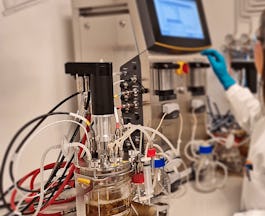In biology, animals are defined as multicellular, eukaryotic organisms, the vast majority of which consume organic material, breathe oxygen, can move, and reproduce sexually. This definition encompasses an incredibly wide range of animals both familiar and unfamiliar, from dogs, cats, horses, and cows to the world of insects and alien-seeming undersea creatures. Whether they are offering companionship, inspiring wonder, providing food, or playing an essential role in the ecological systems we depend on, animals are more than important - it’s impossible to imagine human society without them.
Taking care of our animal partners in society requires a keen understanding of their biology and behavior as well as attention to animal welfare. Animal welfare is typically defined according to “The Five Freedoms”: freedom from hunger and thirst through proper nutrition, freedom from discomfort through the provision of adequate shelter, freedom from pain, injury, and disease, freedom to express normal behavior (e.g. chickens roosting), and freedom from fear and distress.
 Status: Free
Status: Free









